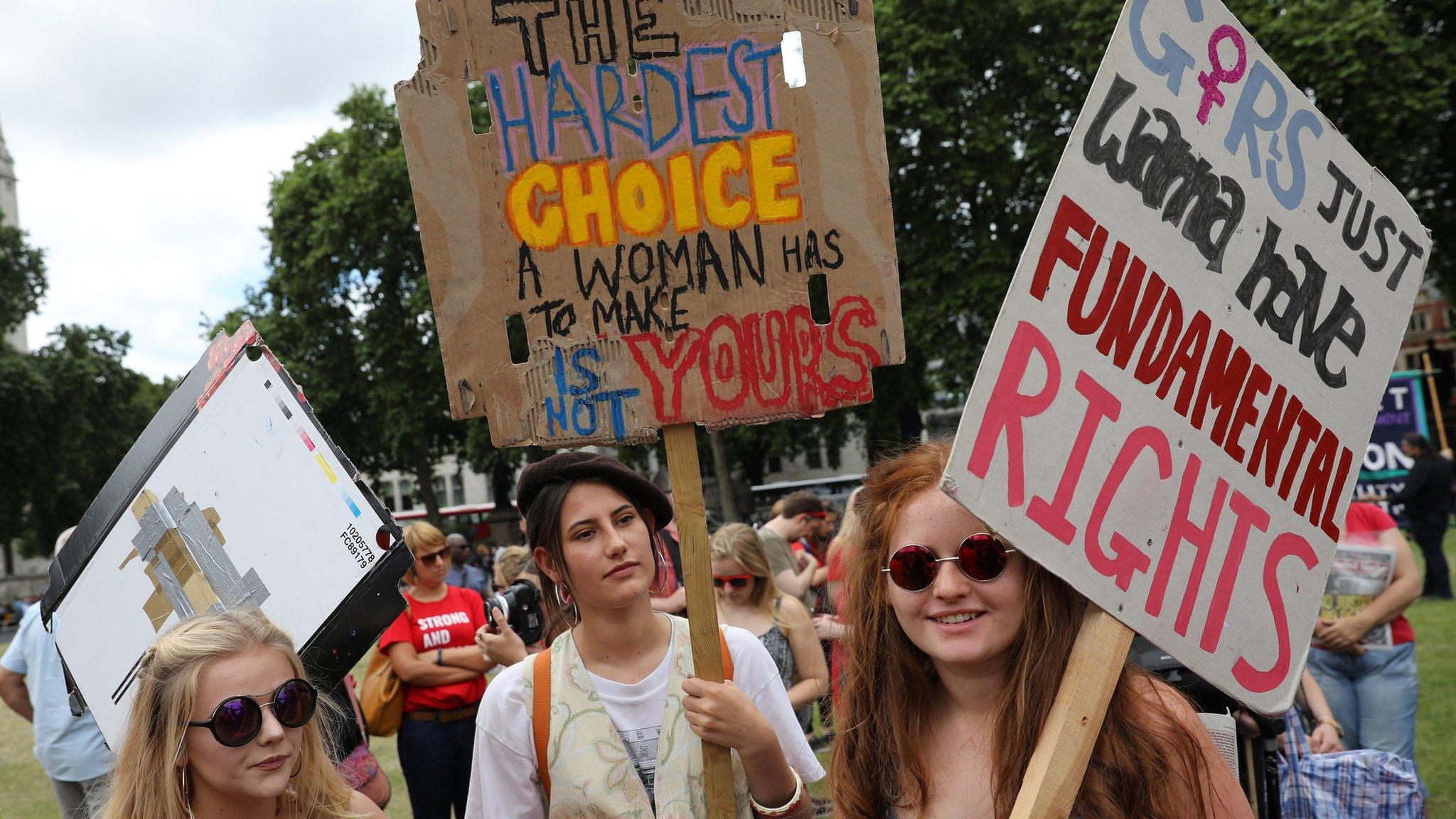Lessons from the government's abortion climbdown
- Published

The government's change of heart on funding abortions for Northern Irish women on the NHS in England matters for three reasons.
Most of all of course, it will make a material difference to the lives of many women who, for whatever reason, find themselves in the situation of crossing the Irish Sea and having to pay for an abortion that the tighter rules in their home country prevent.
Justine Greening, the education secretary and equalities minister, has promised this will end. "It is our proposal that this will no longer happen," she wrote in a letter to all MPs published at lunchtime.
The details will of course be closely monitored, and this is not a change to the situation in Northern Ireland itself, but to provision for women who come here for help.
It matters too because it shows how the arithmetic of the Commons has changed.
Without an overall majority, the Tories were facing a defeat after an impressive campaign by the Labour backbencher Stella Creasy that had garnered support among plenty of Conservatives who looked like they might rebel and vote with her, rather than with their party bosses.
Rather than risk a defeat on a critical day when the Queen's Speech has to pass, Conservative ministers were willing to shift in the end - to make a big concession to avoid being beaten.
Queen's Speech votes are seen as a matter of confidence votes in any government. After chucking away her majority, it is vital today that Theresa May avoids any further embarrassment.
This government climbdown is the first significant evidence that ministers may be willing to budge rather a lot in the face of backbench, and cross-party, demands.
They just do not have the numbers to stand firm on issues where there is sympathy in their own ranks.
Third though, there were suggestions the government would be too afraid of upsetting their partners, the Democratic Unionist Party, only days after their agreement was signed.
The DUP, as many do in Northern Ireland, take a very conservative view on abortion, and while the Tories had insisted they would have no influence over social issues, this was the first test of whether they would somehow be able to pull strings.
In this case however it was the parliamentary numbers that made the difference. It's not clear whether the DUP even tried to exert any pressure.
But in any event, the government has changed its mind, avoiding defeat on the issue and - if, as likely, the amendment is withdrawn - also preventing DUP MPs from having to vote for measures that would fund abortion for Northern Irish women.
That's a complicated way of saying that since the election, the government is more vulnerable to pressure from all sides.
And to avoid giving ground and being defeated day after day, they're already showing a readiness to back down.